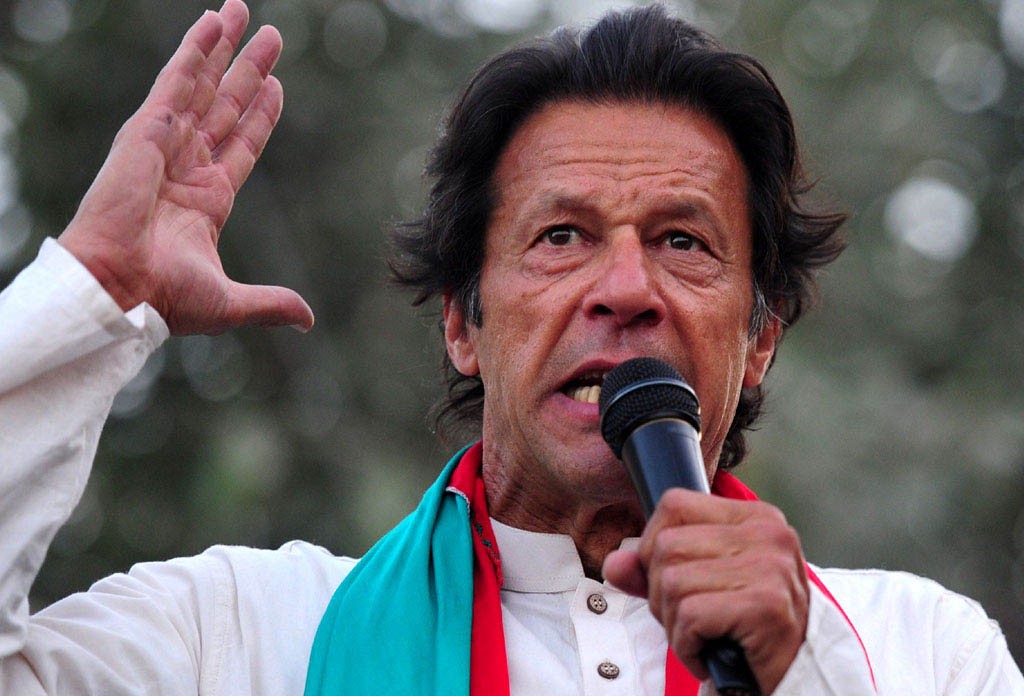
With the induction of Dr Aamir Liaquat Hussain into PTI, it’s obvious the party has turned opportunist, trying to find and fill spaces within the system

"Aasim sahib, I don’t think Khan sahib will allow Dr Aamir Liaquat Hussain to join PTI," said a colleague over the weekend. "It will do irreparable damage, even the Khan must know that."
Clearly, my colleague’s political insight was slightly off target, because lo and behold, Aamir Liaquat is now an insafian. And the whole liberal section of the Khan’s party is up in arms. ‘How could you? We can’t take this no more, this isn’t what I signed up for,’ etc, are some of the popular complains making the rounds on social media. And with elections right round the corner, many feel that the Great Khan of Zaman Park has finally shot himself in the foot.
Or has he?
Noted political analyst, Suhail Warraich, believes that bringing on the disgraced and largely despised quack doctor was a calculated move. "PTI needed a person who has spent time within the MQM, understands them, and can counter their narrative," he says. "Will it work or not, is another question."
Khan’s need to bring in someone who understood the MQM’s narrative in Karachi stems from the breakdown of the party’s stranglehold on the port city. According to Dr Mohammad Waseem, Professor of Political Science at the Lahore University of Management Sciences (LUMS), "the wide Urdu-speaking constituency which was ethnicised over the last thirty years is now getting dissipated and some of them will go to the PPP and many will go to the PTI."
However, Dr Waseem is of the opinion that the PTI is no longer the party it started out to be. "It started out as a party with an agenda which was reformative, and from there, between the last two elections, it has turned into an opportunist, trying to find and fill spaces within the system."
While this change in direction may have borne some fruit, in the guise of heavy electables from other parties joining their ranks, there have been losses as well, especially in the ideologically-oriented cadres of the party and amongst the youth constituency as well. The latest of these losses appeared in the aftermath of Dr Hussain’s joining the PTI, when longtime stalwart, the former rockstar turned sufi, Salman Ahmed decided to part ways with Khan. There were others as well, including writer Mehr Tarar and Adil Ansari, who was a member of the PTI’s social media team. It is now learnt that Salman Ahmed has reaffirmed his support for the PTI.
"The senate election was the culmination of this overall change in strategy, where the PTI made compromises on its long held narrative against Asif Ali Zardari for which it has been criticised," says Dr Waseem.
He feels that this change in strategy has some serious underlying reasons. First and foremost is the lack of a sellable agenda. "By way of performance the PTI has not much to offer, nor by way of policy or ideology, the party has reverted to negative campaigning."
Read more: The chessboard model
What this means is a constant barrage of criticism of other parties and their actions or lack thereof. In doing so, Khan’s party has mainstreamed itself. Today, it is like all the others. "The PPP went the same route," Dr Waseem says. "Starting with an ideological message and millions of workers, and then moving to ideology neutral and policy neutral heavy weights."
More evidence of this mainstreaming is the absence of his longstanding pro-Taliban and anti-US rhetoric, which has sharply decreased in recent months. However, his continuing support for Akora Khattak suggests that the PTI still remains conservative. There is historical precedent as well. After the 2013 elections, there was a hue and cry on the PTI offering the KP education department to a Jamaat leader. Much of this criticism came from international donors, who were eventually pacified when it was learnt that the JI nominee was a former health minister who had good relations with them.
Despite the PTI’s ideological about turn, to Suhail Warraich, the PTI’s prospects in the Punjab still look strong. "PTI is in a better position in Punjab than it was in 2013. This is because everywhere they have alternative candidates -- if the number one candidate is in the PML-N, then the second is with them and vice versa," he says. "The question mark now is the floating vote, and which way it swings. Can Imran Khan make it sway towards his party and not the other way? So far it doesn’t look likely."
However, as the by-election in Lodhran confirmed, there is a serious split within the PTI, especially in Southern Punjab. There are two factions operating, one backed by Jehangir Tareen, and the other by Shah Mahmood Qureshi and other PPP stalwarts who jumped ship. Because of his historical (and continued) leaning towards Tareen, Qureshi and his camp felt disillusioned, and when they were not offered a party ticket, they chose to run as independent candidates, thereby decreasing the overall votes that the PTI would have gotten. The shock defeat in Lodhran can basically be attributed to the above.
Warraich believes that the Tareen faction still remains the potent faction within the PTI, despite the disqualification of Jahangir Tareen and his son’s defeat in Lodhran. However, the disparity has decreased.
However, he warns that what went down in the senate elections was a grim reminder of how powerful the powers that be remain. "The upcoming elections will not be purely political," he says.
Is the analyst suggesting that the party/parties which have the support of the establishment will come out on top? One thing is certain, the PML-N will be going against all the political parties and the establishment as well.
The question then is: Is the PTI willing to sleep with the establishment, if it hasn’t already, for it to reap the possible rewards? We will know soon enough.